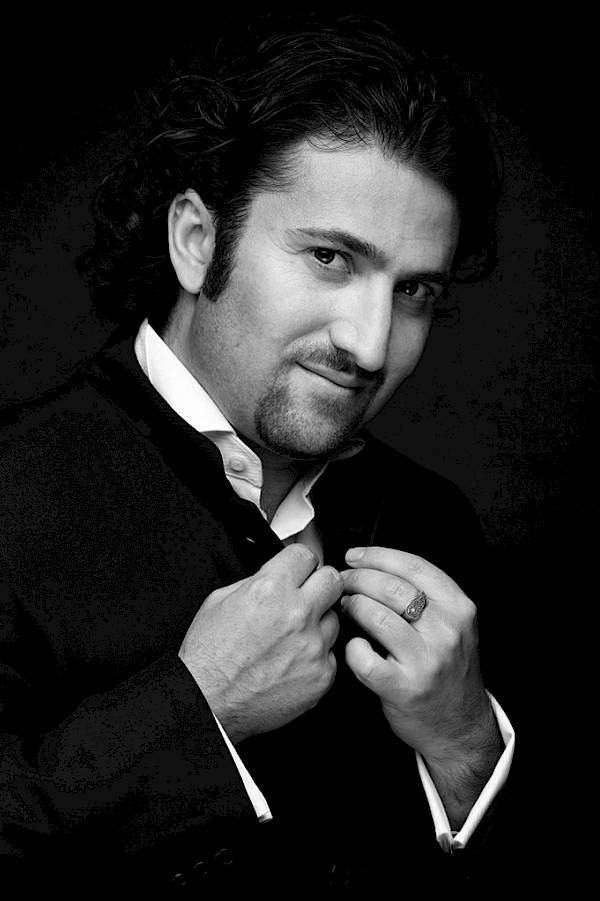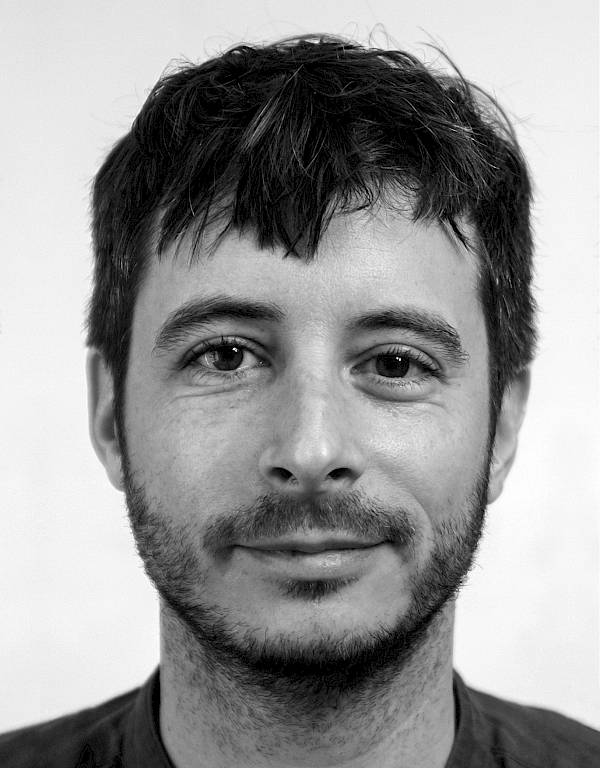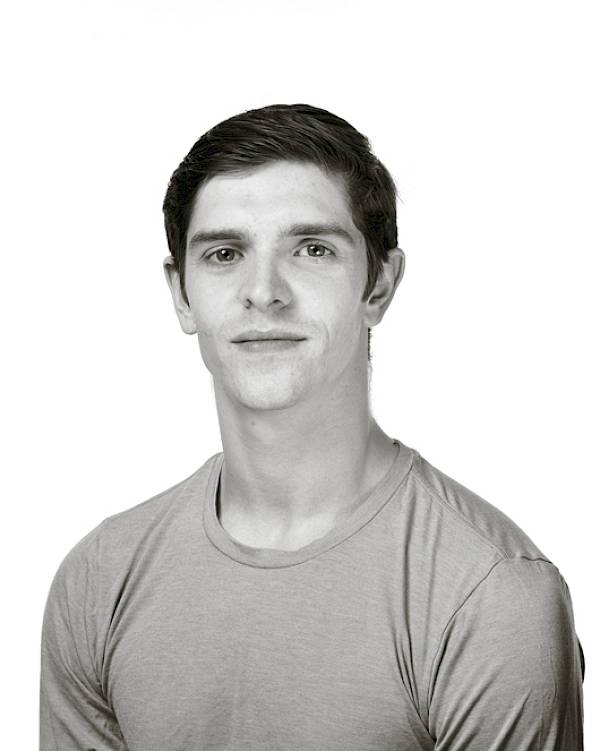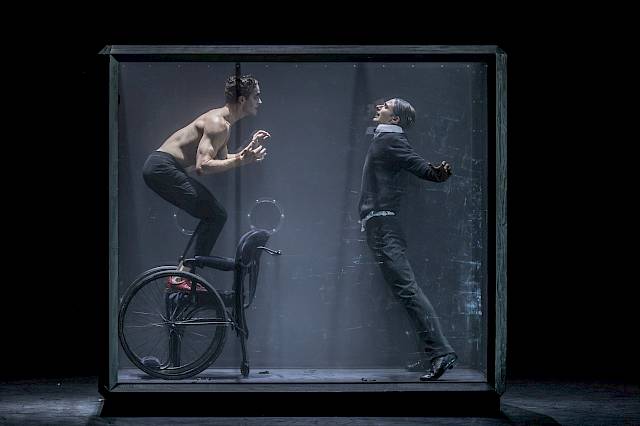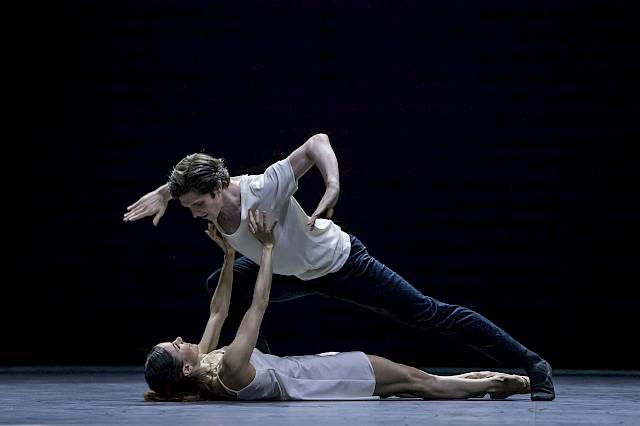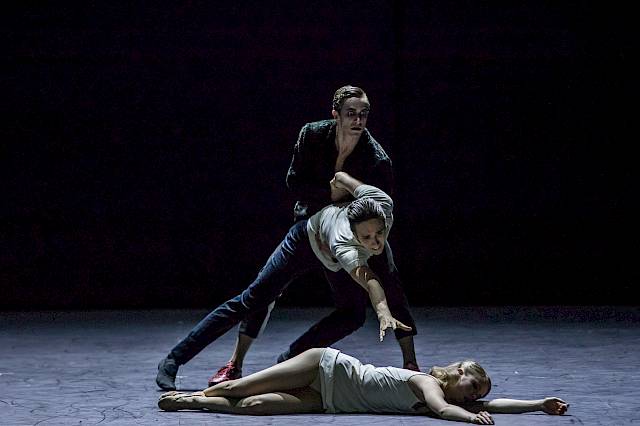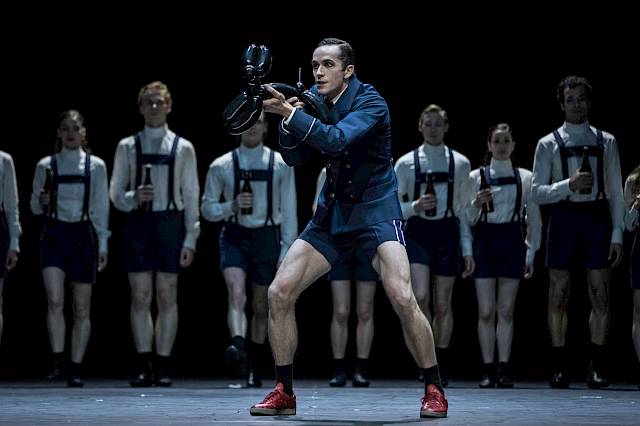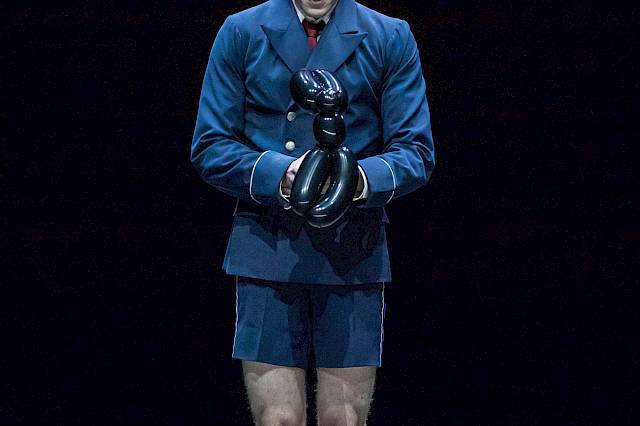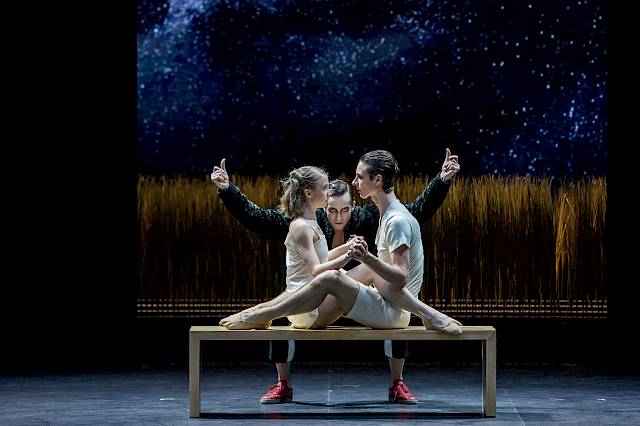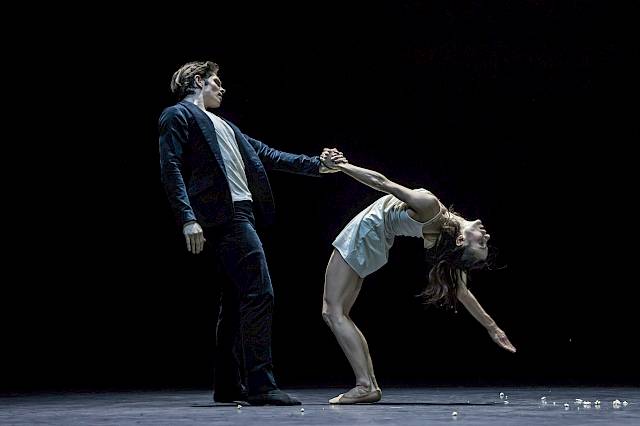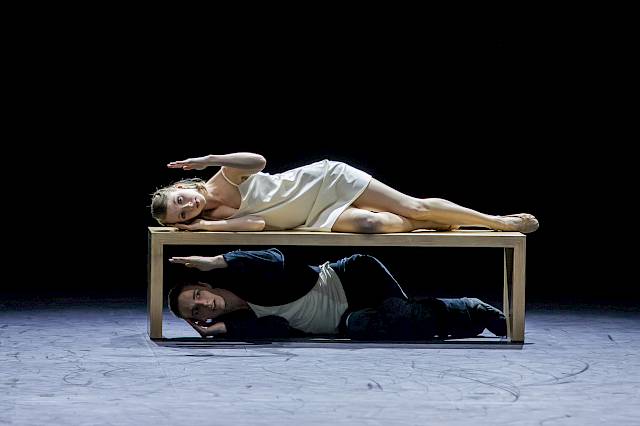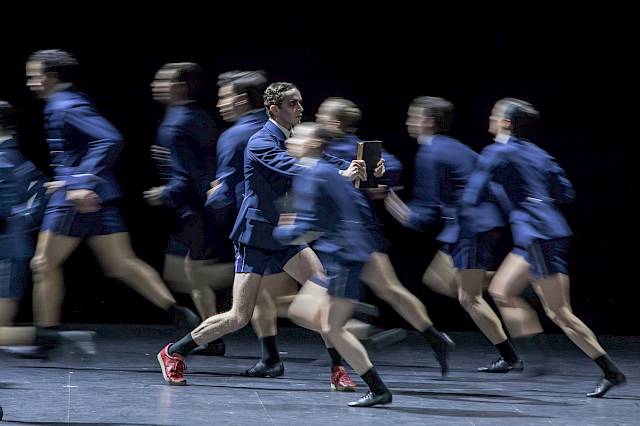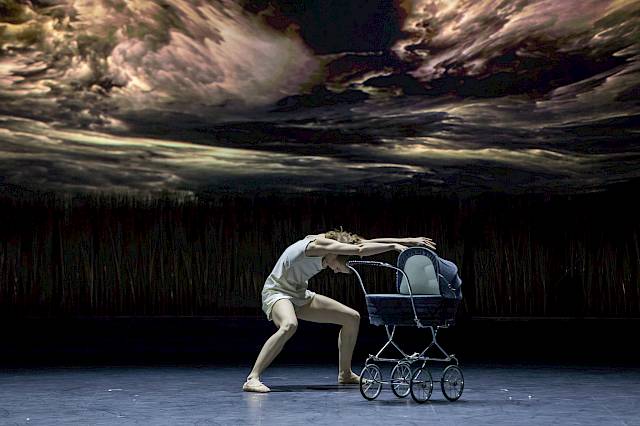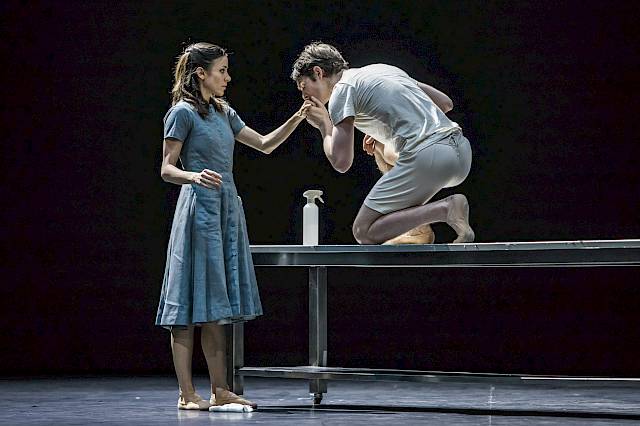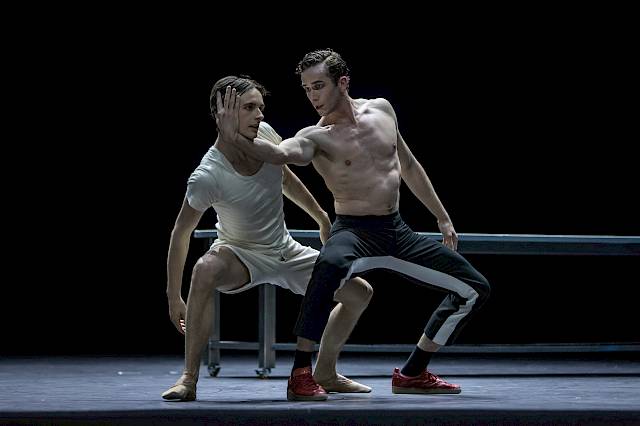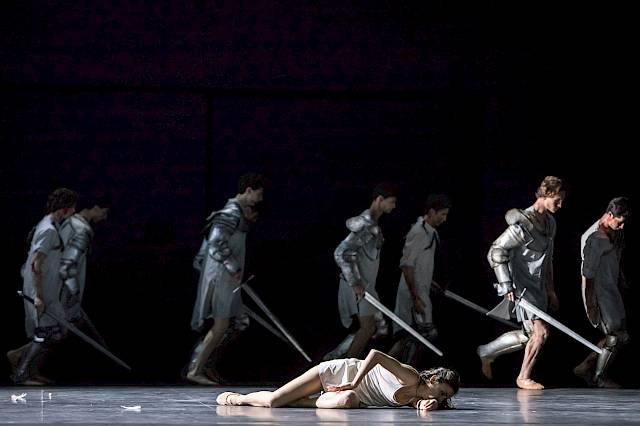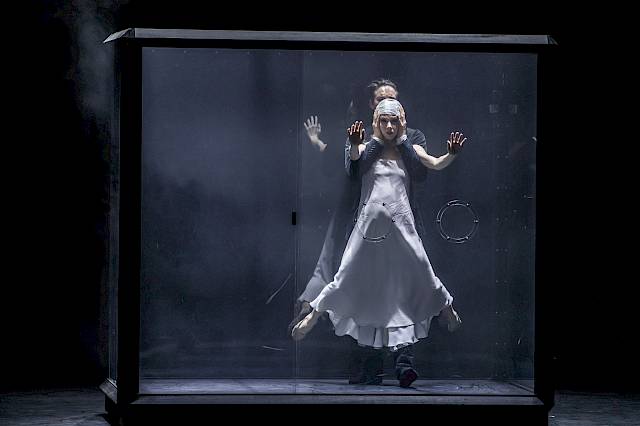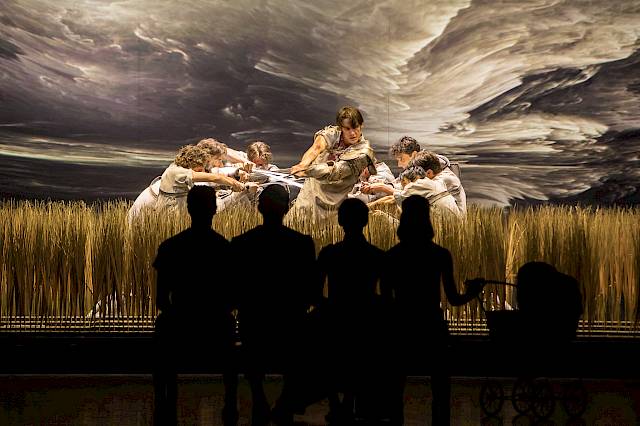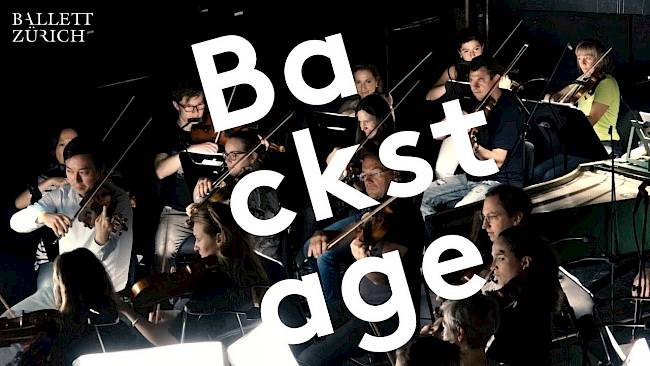Abstract
The legend of the scholar Faust, the devil Mephisto and the innocently seduced Gretchen is one of the most powerful stories in dramatic literature. Taken from a book of folk tales dating from the 16th century and transformed into a major work of western literature by Johann Wolfgang von Goethe, the Faust story has inspired countless artists to various treatments and adaptations.
For this Ballett Zürich world première, choreographer Edward Clug has now taken on Goethe’s version of the Faust story, which centres on the self-absorbed, doubting intellectual Faust, who is driven by his ceaseless thirst for knowledge. He fails when he attempts to “perceive whatever holds the world together in its innermost folds.” As a singularly modern figure and a symbol of the human hubris of our time, Faust also takes centre stage for Edward Clug, but the choreographer is also interested in the story of Gretchen’s sacrifice and the hellish portrayal of the Walpurgis Night.
Any choreographer who takes on Faust, an icon of world literature, will need to be courageous, possess artistic ability and an imaginative approach to narrative dance. The principal of the Slovenian National Ballet in Maribor most recently proved that he fulfils all these requirements with his acclaimed Zurich reinterpretation of Igor Stravinsky’s Le Sacre du printemps. Together with set designer Marko Japelj and costume designer Leo Kulaš, Edward Clug will stage Faust as a full-length narrative ballet. Once again, he will collaborate with Milko Lazar, one of Slovenia’s most renowned composers. The young Russian conductor Mikhail Agrest will conduct the world première of this new ballet.


